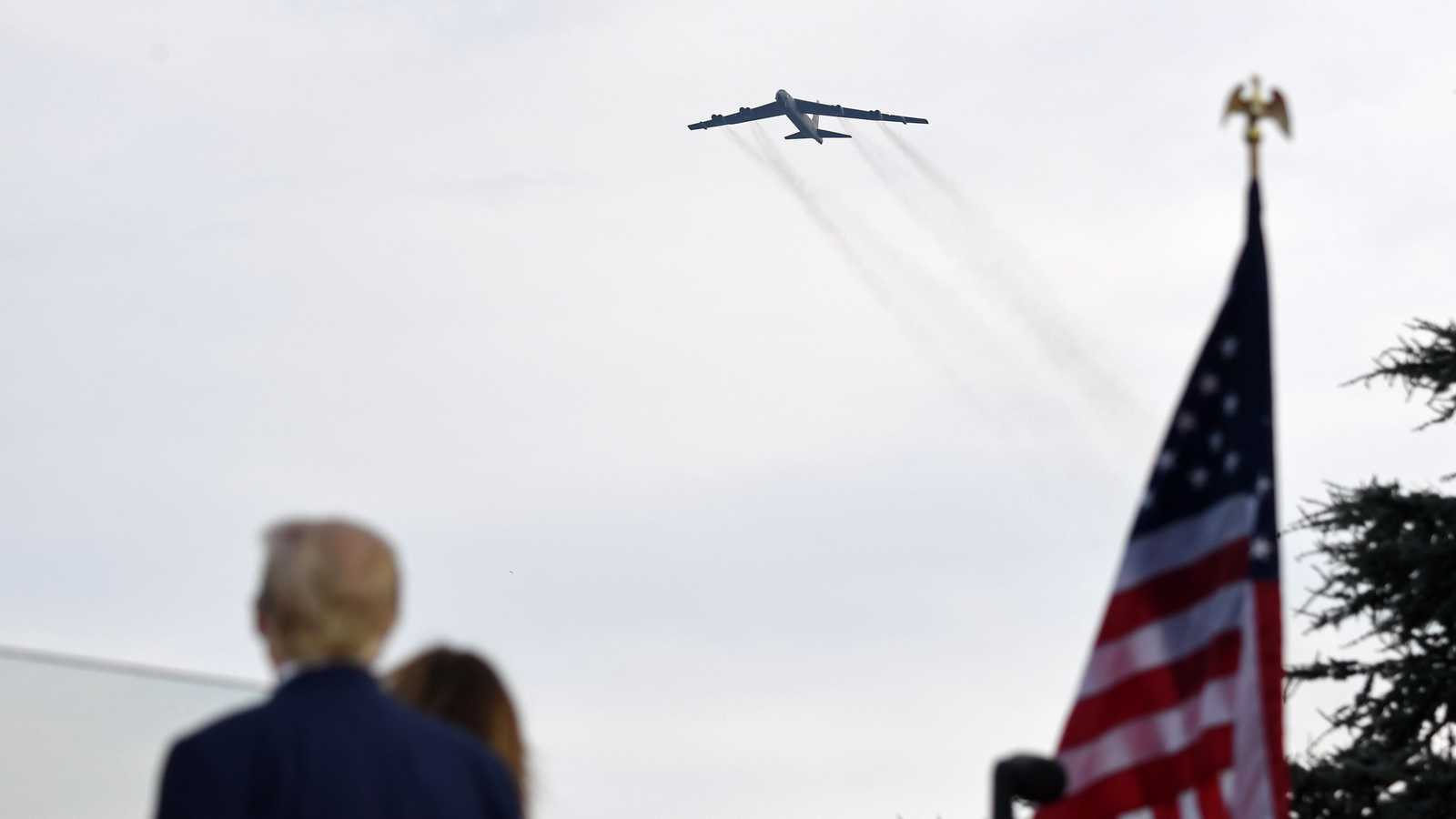
The deployment is the third flight of nuclear-capable Stratofortresses to the region in less than two months
Two American B-52 bombers flew over the Middle East on Wednesday in the latest show of force against Iran as tensions rise ahead of Sunday’s anniversary of the US assassination of Iranian Maj. Gen. Qasem Soleimani.
The bombers deployed from Minot Air Force Base in North Dakota and were escorted by US F-16s, according to US Central Command. Wednesday marked Washington’s third deployment of nuclear-capable B-52s to the region on short notice in the last 45 days.
Fox News reported Wednesday that a recent US intelligence report affirmed what Iranian officials have said publicly since early this year: that Tehran seeks revenge for Soleimani’s assassination.
“Some friendly health advice to Iran: If one American is killed, I will hold Iran responsible. Think it over,” President Trump wrote in a tweet last week.
Trump’s warning came after a barrage of at least 20 rockets rained down near the US embassy in Baghdad’s Green Zone on Dec. 20. The United States blamed Iran-linked militias for the attack, although Iran and one of its main proxy militias in Iraq, Kataib Hezbollah, condemned it, adding to concerns that the Islamic Republic may not be able to fully control pro-Iran militias in Iraq.
The US military carried out orders to kill Soleimani in drone strike in Baghdad on Jan. 3 after a rocket attack on an Iraqi military base killed an American contractor.
CENTCOM commander Gen. Kenneth “Frank” McKenzie, who heads US forces in the Middle East, told reporters last week that the United States is not seeking conflict with Iran and that Washington’s display of military force in the region is aimed at deterrence.
“We are prepared to defend ourselves, our friends and partners in the region, and we’re prepared to react if necessary,” McKenzie told reporters last week.
“No one should underestimate our ability to defend our forces or to act decisively in response to any attack,” he said. McKenzie told ABC News last week that the weeks leading up to the Jan. 3 anniversary of Soleimani’s killing are “a period of heightened risk.”
Iranian Supreme Leader Ayatollah Ali Khamenei last month called for retaliation over the assassination of an Iranian nuclear scientist. Officials in Tehran blamed that ambush on Israel.
Khamenei again reaffirmed earlier this month that Iran would take revenge, at a time of Iran’s choosing, against those who ordered and carried out Soleimani’s assassination. The supreme leader also suggested the act would be carried out through Iran’s regional proxy forces.
The leader of Lebanon’s Hezbollah movement, Hassan Nasrallah, reiterated the threat of revenge on Sunday, but also called Trump “crazy” and said the remaining weeks before President-elect Joe Biden takes office should be approached carefully.
The Pentagon has been raising the stakes in the region in recent weeks by redeploying an aircraft carrier, the USS Nimitz, and sending a nuclear-powered submarine, the USS Georgia, escorted by two guided-missile cruisers, via the Strait of Hormuz into the Persian Gulf.
Israel also reportedly sent a Dolphin-class submarine through the Suez Canal, though its itinerary thereafter was not clear.
 Eurasia Press & News
Eurasia Press & News



